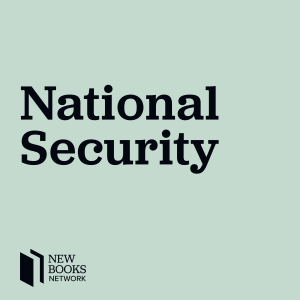
New Books in National Security
Science:Social Sciences

Richard Drake, "Charles Austin Beard: The Return of the Master Historian of American Imperialism" (Cornell UP, 2018)
 2019-03-12
2019-03-12
Download
Right click and do "save link as"
During the first half of the 20th century the American historian Charles Austin Beard enjoyed both professional success and a national prominence that suffered with his outspoken opposition to the direction of foreign policy under Franklin Roosevelt. In Charles Austin Beard: The Return of the Master Historian of American Imperialism (Cornell University Press, 2018), Richard Drake traces the development of Beard’s ideas in this area and his involvement in the contemporary discourse over current events. Drake identifies Beard’s time at Oxford University as key to the development of his thinking, with his introduction to the works of John Ruskin and John Atkinson Hobson. Though Beard’s early writings led to a friendship with the progressive politician Robert La Follette, the two men disagreed about America’s intervention in the First World War, a cause Beard supported. In its aftermath, however, Beard reconsidered his opinion, and by the 1930s emerged as a prominent critic of America’s involvement in overseas disputes. Beard held to his views even after America’s entry into the Second World War, establishing an unlikely association with former president Herbert Hoover and offering a prescient critique in its aftermath of the consequences of America’s postwar foreign policy.
Learn more about your ad choices. Visit megaphone.fm/adchoices
view more
More Episodes
012345678910111213141516171819
Create your
podcast in
minutes
- Full-featured podcast site
- Unlimited storage and bandwidth
- Comprehensive podcast stats
- Distribute to Apple Podcasts, Spotify, and more
- Make money with your podcast
It is Free
- Privacy Policy
- Cookie Policy
- Terms of Use
- Consent Preferences
- Copyright © 2015-2024 Podbean.com





